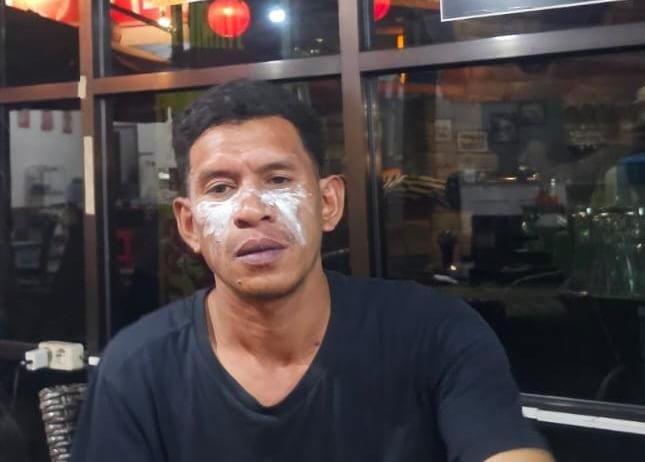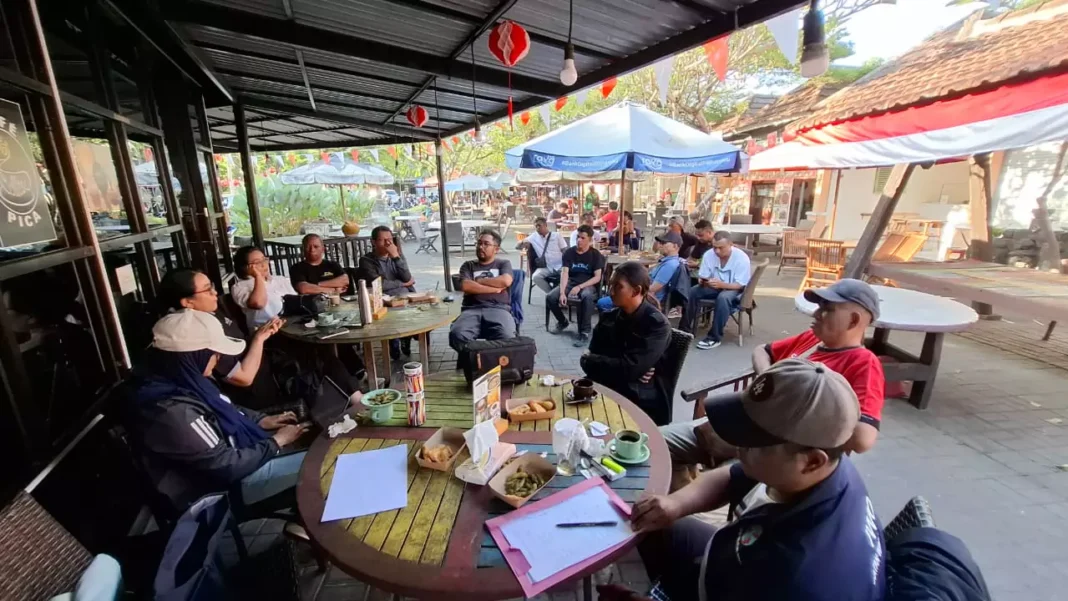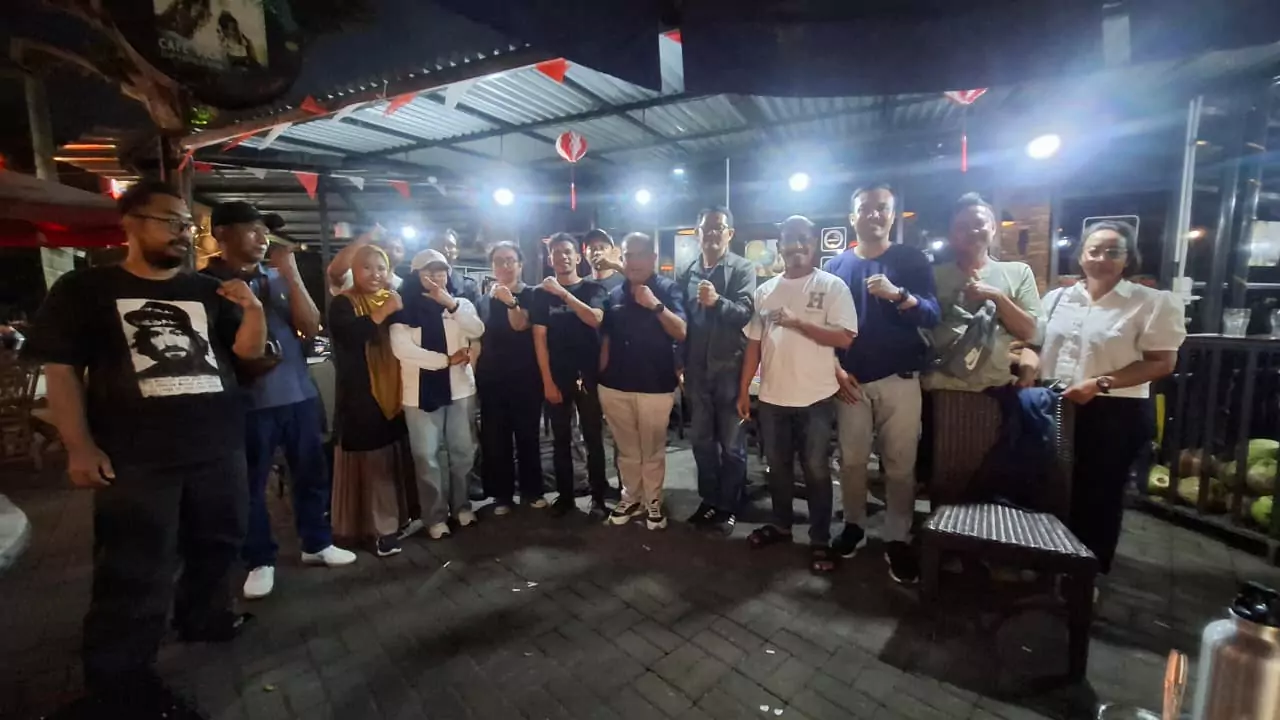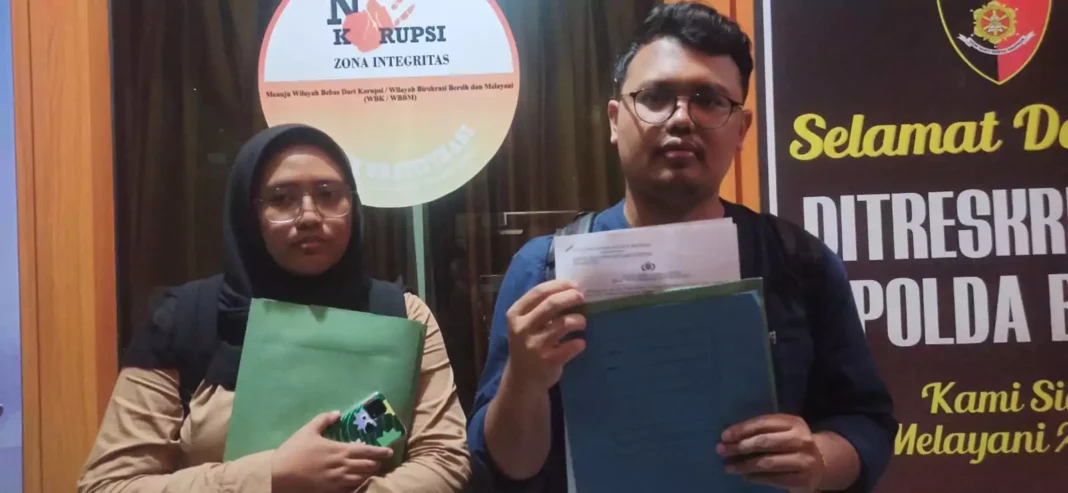Bali press intimidation – Let’s be honest—sometimes in Bali, the biggest headlines aren’t about new beach clubs or viral TikTok spots. Sometimes, they’re about something far more fundamental: the right to tell the story itself.
The recent Bali press intimidation incidents during protests at the Bali Police Headquarters have done something remarkable. They’ve brought together rival journalist organizations—IWO, AJI, PWI, and PENA NTT—to form a united front. That’s like the Avengers, but with more notebooks and less spandex.
The Gathering: From Competitors to Comrades
In a powerful show of solidarity, journalists from across Bali’s media landscape put aside organizational affiliations and gathered at Pica Sudirman, Denpasar. The agenda? To form a unified response to the Bali press intimidation that targeted their colleagues.
This isn’t normal. In the often fragmented world of media, this cross-organizational unity is huge. It signals that the issue is bigger than any single outlet or guild—it’s about the fundamental safety of telling truths in Bali.

More Than One Victim: The Pattern Emerges
While Rovin Bou’s case gained traction due to strong evidence (CCTV, photos, witnesses), the forum revealed this wasn’t isolated. Another journalist, Nia, faced similar Bali press intimidation, but her report was initially dismissed by police for “lack of evidence.”
Even more subtly, IWO Bali Chair Tri Widiyanti experienced what attendees called “thin intimidation”—a quieter form of pressure that’s equally dangerous. This pattern shows the problem isn’t one “bad apple” officer, but a culture that sometimes sees journalists as adversaries rather than allies in democracy.
The Three-Point Plan: Solidarity in Action
This coalition didn’t just talk—they strategized. Their action plan is razor-sharp:
-
Formal Push: Escort victims to file official reports, creating legal pressure for police accountability and a formal apology.
-
Bargaining Power: Unite all Bali press organization leaders into a single negotiating body with the police. There’s strength in numbers.
-
A Safety Net: Propose a joint Hotline for Journalist Assault for immediate response and support—a literal lifeline for reporters in the field.
The Expert Take: “Safety Over Scoops”
The advice from veterans in the room was pragmatic and crucial. Ayu of AJI Denpasar emphasized practical field safety: “Stick together, don’t spread out. Maintain distance. Your safety is more important than the scoop.”
Arief Wibisono of PWI Bali added a key perspective: “Our job is to be interpreters of truth to prevent friction. Press freedom is vital, but our safety is more important.” This mature approach highlights that the goal isn’t confrontation, but ensuring journalists can do their work without fear.
Why This Matters to Everyone in Bali
Think this doesn’t affect you? Think again. When journalists are intimidated, the first casualty is the truth. When they can’t safely report on protests, policy, or power, you get less information. You get more rumors. You get a less accountable society.
Whether you’re a local business owner, an expat, or a tourist, accurate information is the currency of a functional community. The fight against Bali press intimidation is ultimately a fight for everyone’s right to know.
A New Chapter for Bali Media
This coalition is a watershed moment. It’s no longer about isolated incidents but about building a systemic solution—a safer, more respected environment for the press.
The message to authorities is clear: Bali’s journalists are united, organized, and watching. They’re not asking for special treatment, just the ability to do their job—which is, ultimately, serving the public.
The world loves Bali for its beauty. Now, it’s time to protect the ecosystem that tells its true stories.






